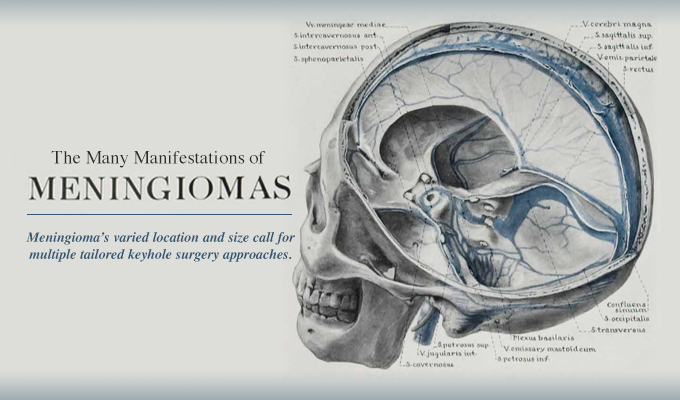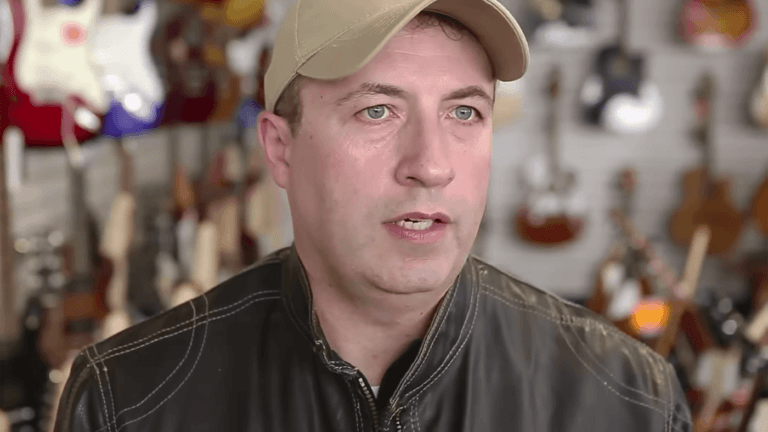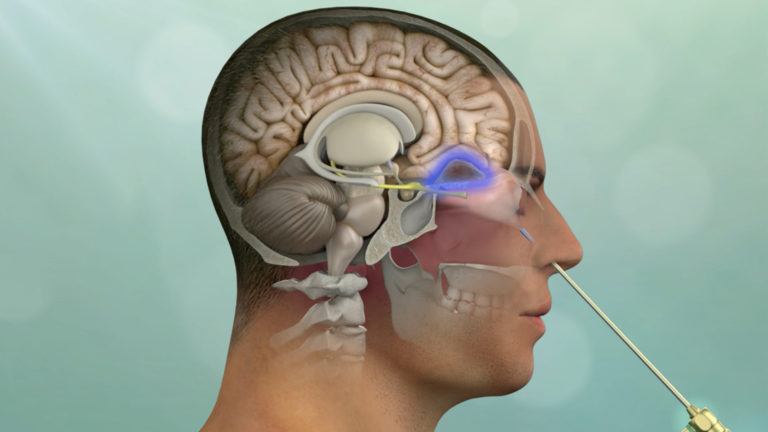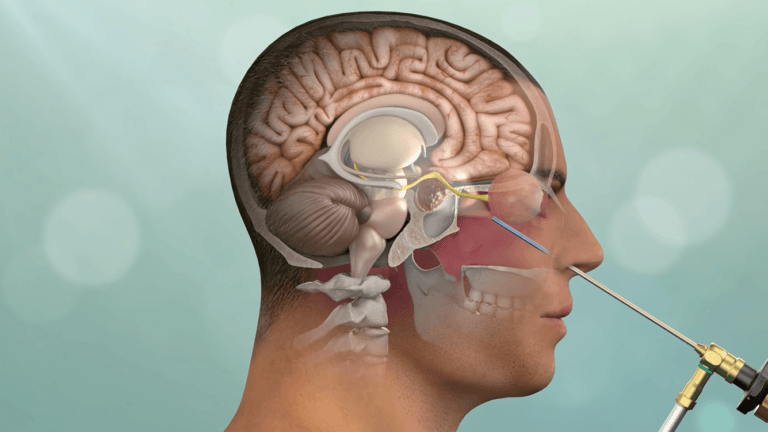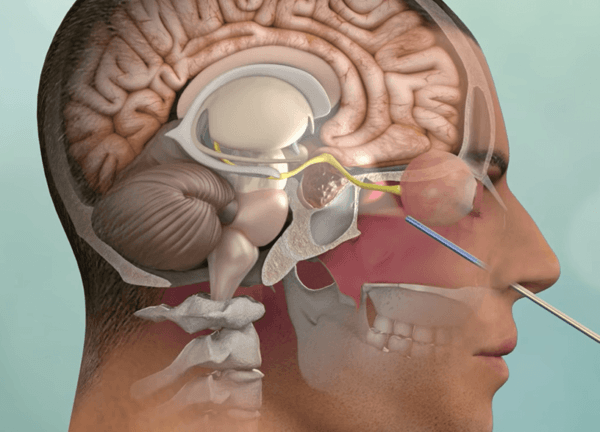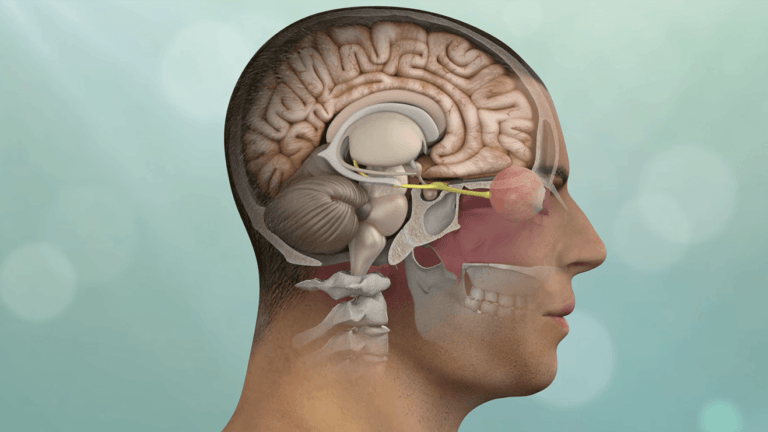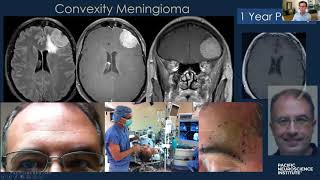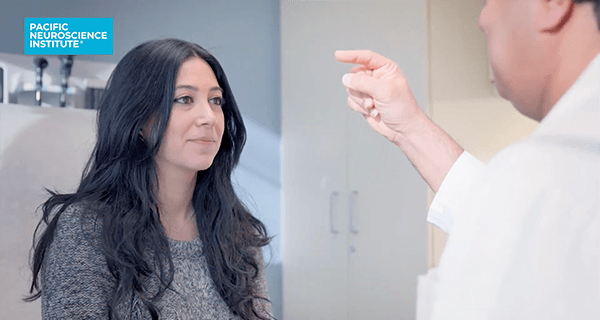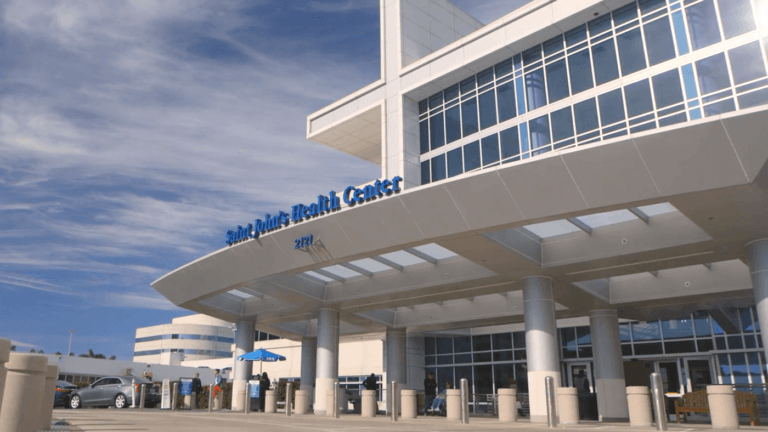

When A Meningioma Invades The Brain
by Zara Jethani
A grateful patient tells her story of meningioma surgery and care with Dr. Daniel Kelly at Pacific Neuroscience Institute®. The growing benign brain tumor was dismissed by other providers until it started causing severe problems. Read Brenda’s compelling story.
A Meningioma Diagnosis
I was diagnosed with a meningioma of the brain in December of 2015. The neurologist I was seeing over the course of the next six-and-a half years advised me to observe a “watch and wait” strategy as a course of treatment. I trusted him and his opinion — unfortunately.
The Wrong Advice
By the time I sensed something was desperately wrong and demanded an additional MRI, my tumor had invaded my superior sagittal sinus and had impinged on my motor band. That neurologist finally advised me to consult a neurosurgeon, telling me that I had two months to live if I did not have meningioma surgery, a prognosis confirmed by another neurosurgeon – one I had faith in.
Upon consultation, the neurosurgeon told me that I would require two surgeries — one conventional and a later one by Gamma Knife — since he would not be able to remove the entire tumor because of its proximity to the two non-regenerative, but essential structures of my brain.
He said that I would be in the hospital 3-5 days, that I would require steroids during surgery and during my hospitalization and 10-14 days after my surgery, that I would probably need narcotics for pain, and that I would probably require both physical and occupational therapy in the hospital and at home.
I was not happy with this option.
Back On Track
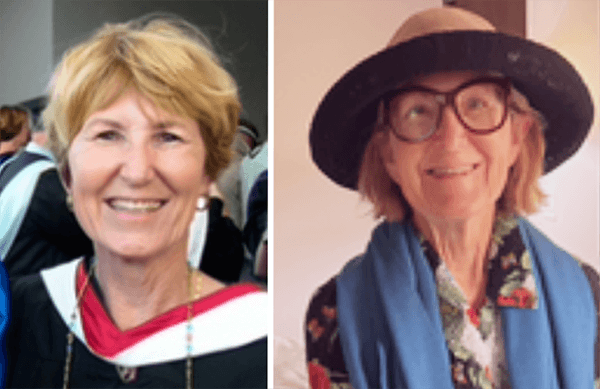
Through the good offices of my endocrinologist, Dr. Michael Truong, I was recommended to an excellent neurosurgeon Dr. Daniel Kelly at the Pacific Brain Tumor Center at Pacific Neuroscience Institute®, and was put in touch with Amy Eisenberg, Dr. Kelly’s nurse practitioner. In an extraordinary act of kindness, compassion, and professionalism, Amy called me on the same Friday night on which I had talked with Dr. Truong.
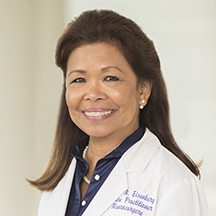
It was 7 pm. Amy told me that she would call me again on the following Monday or Tuesday to schedule an appointment with Dr. Kelly, who was on vacation the following week. Amy performed a miracle and schedule me right away. I was able to participate in a tele-med visit with Dr. Kelly to discuss treatment options for meningioma, on the Monday he returned to work.
Minimally Invasive Surgery Options for Meningioma
In contrast to the previous neurosurgeon’s recommendations, and because of his innovations in minimally invasive surrey and his skill as a surgeon, Dr. Kelly was able to give me a markedly different outlook for the surgical treatment of meningioma: 1-2 days in the hospital, minimal steroids, minimal (if any) narcotics.
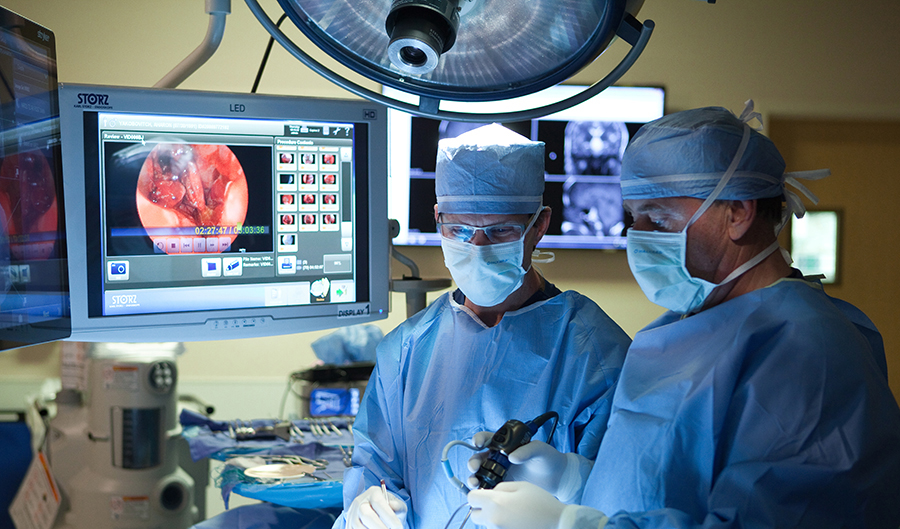
As a result of the skills and patient-focused treatment of Dr. Kelly and his team, I was in the hospital for only 1 night. I had minimal steroids during surgery and none afterward. I required no narcotics and took only two doses of Tylenol during my stay. Otherwise, I was able to manage my discomfort with meditation.
Thankfully Living An Active Life After Brain Tumor Surgery
Within a week, I was walking 1 mile a day, and within two weeks, I was walking 3 miles a day. I experienced absolutely none of the possible side effects that include stroke, seizure, and excruciating headaches

I hope that you never require neurosurgery, but should you, I urge you to choose Pacific Neuroscience Institute‘s Dr. Daniel Kelly as your surgeon. He is truly a miracle worker of the first order.
Text adapted from original grateful patient testimonial provided by Brenda B of South Laguna, California.
What is Meningioma
Meningiomas are the most common primary brain tumor. Fortunately, most are benign and slow-growing although up to 10% can grow rapidly. They are more common in women than men and can occur in all ages but are typically seen in middle-aged and older adults. Most meningiomas needing surgery can be removed through one of several minimally invasive keyhole approaches.
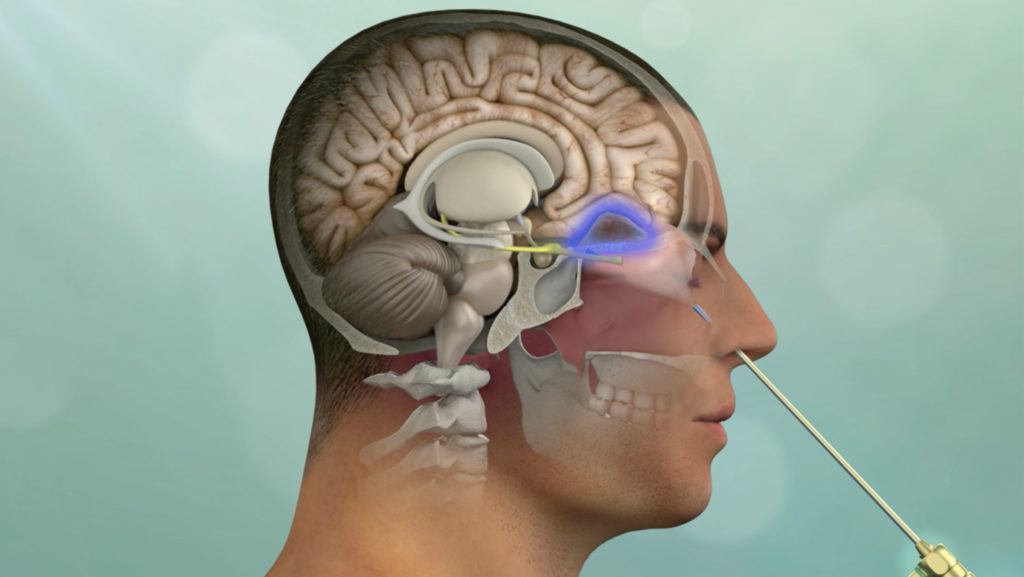
About Dr. Daniel Kelly

Dr. Daniel Kelly, a board-certified neurosurgeon, is the Director and one of the founders of the Pacific Neuroscience Institute, Director of the Pacific Brain Tumor Center and Pacific Pituitary Disorders Center, and is Professor of Neurosurgery at Saint John’s Cancer Institute at Providence Saint John’s Health Center.
For more information about meningioma, contact Pacific Brain Tumor Center, Santa Monica at 310-582-7450
Related Meningioma Articles
Related Meningioma Videos
About the Author

Zara Jethani
Zara is the marketing director at Pacific Neuroscience Institute. Her background is in molecular genetics research and healthcare marketing. In addition, she is a graphic designer with more than 20 years experience in the healthcare, education and entertainment industries.
Last updated: May 2nd, 2023



